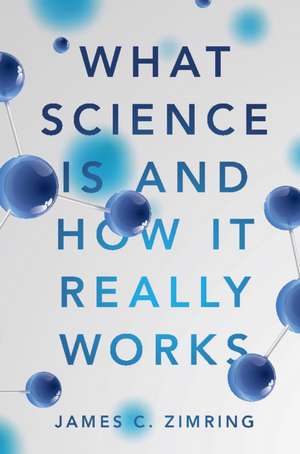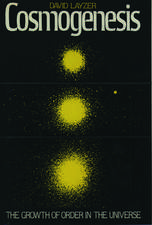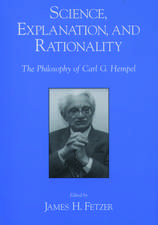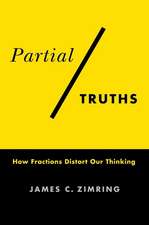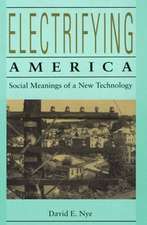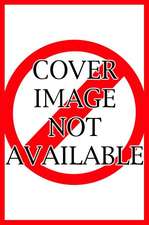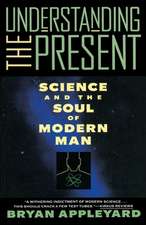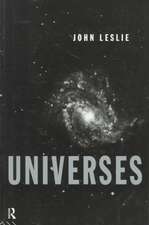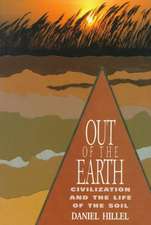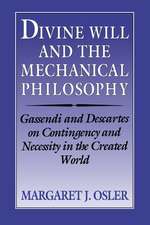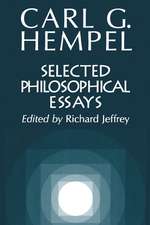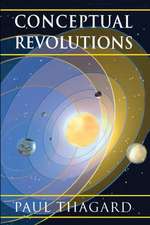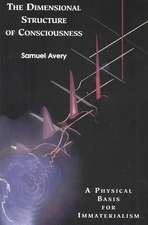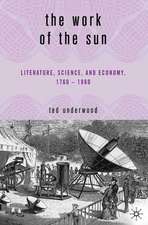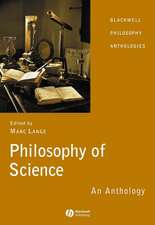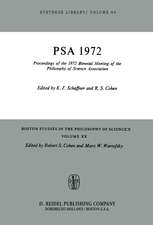What Science Is and How It Really Works
Autor James C. Zimringen Limba Engleză Hardback – 17 iul 2019
| Toate formatele și edițiile | Preț | Express |
|---|---|---|
| Paperback (1) | 171.13 lei 3-5 săpt. | |
| Cambridge University Press – 17 iul 2019 | 171.13 lei 3-5 săpt. | |
| Hardback (1) | 429.75 lei 38-44 zile | |
| Cambridge University Press – 17 iul 2019 | 429.75 lei 38-44 zile |
Preț: 429.75 lei
Preț vechi: 530.57 lei
-19% Nou
Puncte Express: 645
Preț estimativ în valută:
82.24€ • 85.34$ • 68.74£
82.24€ • 85.34$ • 68.74£
Carte tipărită la comandă
Livrare economică 11-17 martie
Preluare comenzi: 021 569.72.76
Specificații
ISBN-13: 9781108476850
ISBN-10: 1108476856
Pagini: 402
Ilustrații: 10 b/w illus.
Dimensiuni: 156 x 235 x 22 mm
Greutate: 0.77 kg
Editura: Cambridge University Press
Colecția Cambridge University Press
Locul publicării:Cambridge, United Kingdom
ISBN-10: 1108476856
Pagini: 402
Ilustrații: 10 b/w illus.
Dimensiuni: 156 x 235 x 22 mm
Greutate: 0.77 kg
Editura: Cambridge University Press
Colecția Cambridge University Press
Locul publicării:Cambridge, United Kingdom
Cuprins
Introduction; Part I: 1. The knowledge problem, or what can we really 'know'?; 2. Adding more building blocks of human reasoning to the knowledge problem; 3. Holistic coherence in thinking, or describing a system of how humans reason and think; Part II: 4. How scientific reasoning differs from other reasoning; 5. Natural properties of a rule-governed world, or why scientists study certain types of things and not others; 6. How human observation of the natural world can differ from what the world really is; 7. Detection of patterns and associations, or how human perceptions and reasoning complicate understanding of real-world information; 8. The association of ideas and causes, or how science figures out what causes what; Part III: 9. Remedies that science uses to compensate for how humans tend to make errors; 10. The analysis of a phantom apparition, or has science really been studied yet?; 11. The societal factor, or how social dynamics affect science; 12. A holistic world of scientific entities, or considering the forest and the trees together; 13. Putting it all together to describe 'what science is and how it really works'.
Recenzii
'We live in a world where the discoveries of well-done science are rapidly improving the lives of millions; but at the same time poorly done inquiry that fails to meet the foundational principles of science, even when carried out with all good intentions, can result in harmful false conclusions resulting in wasting of resources, bad results for individuals and bad public policy for nations. Dr Zimring has produced a marvelously cogent and eminently readable book that explains how to recognize good science and know when to question poor 'scientific' conclusions. Reading this book places scientists and non-scientists on the same playing field when discussing critical issues and making important decisions. I would feel much better going to the polls if every voter understood the lessons that Zimring effortlessly communicates.' Brian R. Smith, Yale University, Connecticut
'The message of this extraordinary book is loud and clear: we need a better understanding of science. That it is written by a scientist - and aimed in part at a scientific audience - makes the message all the more credible … and urgent. Science may not be perfect, but it is the best hope we've got. Zimring has written an engaging and accessible book on the importance of digging beneath what we think we know about science.' Lee McIntyre, Boston University and author of The Scientific Attitude: Defending Science from Denial, Fraud, and Pseudoscience
'In his recent book, What Science Is and How It Really Works, University of Virginia Professor of Pathology James C. Zimring, aspired to answer those vital questions. He correctly recognizes that the process of science is woefully misunderstood by the general public and even by many scientists. Anchored with a keen grasp of philosophy, logic, and reason, Zimring attempted to resolve a variety of misconstructions.' Ross Pomeroy, RealClearScience (https://www.realclearscience.com)
'[Zimmering] asks important questions, such as: What are scientific 'facts'? How does science differ from non-science? And, how is a layperson to judge a claim that asserts it is 'scientific'? The special imprimatur given to the findings of science (the so-called Legend of Science) requires us to be able to evaluate its claims rationally and dispassionately, from the benefits of vaccines to the threats of climate change. The book's three parts are devoted, respectively, to scientific reasoning and logic; flaws that undermine natural human observation; and how scientific processes and methods seek to addresses those flaws. The author's goal is to assist nonscientists in assessing scientific claims while-perhaps more importantly-enabling scientists to defend science (by deconstructing the Legend).' N. Sadanand, Choice
'I certainly wish I had read a book like Zimring's when I started my graduate studies; this would have helped me avoid many of the mistakes I made … I recommend Zimring's book for students who contemplate a career in science … Zimring says that science very much needs its fringe thinkers, although it often treats them badly. In conclusion, to paraphrase Winston Churchill, science is the worst way to understand the world except for all the other ways. What Science Is and How It Really Works gives lots of examples of how the scientific method has allowed the big brains of unpromising apes to understand the world better than we had any right to expect.' Stanley A. Rice, The American Journal of Psychology
'The message of this extraordinary book is loud and clear: we need a better understanding of science. That it is written by a scientist - and aimed in part at a scientific audience - makes the message all the more credible … and urgent. Science may not be perfect, but it is the best hope we've got. Zimring has written an engaging and accessible book on the importance of digging beneath what we think we know about science.' Lee McIntyre, Boston University and author of The Scientific Attitude: Defending Science from Denial, Fraud, and Pseudoscience
'In his recent book, What Science Is and How It Really Works, University of Virginia Professor of Pathology James C. Zimring, aspired to answer those vital questions. He correctly recognizes that the process of science is woefully misunderstood by the general public and even by many scientists. Anchored with a keen grasp of philosophy, logic, and reason, Zimring attempted to resolve a variety of misconstructions.' Ross Pomeroy, RealClearScience (https://www.realclearscience.com)
'[Zimmering] asks important questions, such as: What are scientific 'facts'? How does science differ from non-science? And, how is a layperson to judge a claim that asserts it is 'scientific'? The special imprimatur given to the findings of science (the so-called Legend of Science) requires us to be able to evaluate its claims rationally and dispassionately, from the benefits of vaccines to the threats of climate change. The book's three parts are devoted, respectively, to scientific reasoning and logic; flaws that undermine natural human observation; and how scientific processes and methods seek to addresses those flaws. The author's goal is to assist nonscientists in assessing scientific claims while-perhaps more importantly-enabling scientists to defend science (by deconstructing the Legend).' N. Sadanand, Choice
'I certainly wish I had read a book like Zimring's when I started my graduate studies; this would have helped me avoid many of the mistakes I made … I recommend Zimring's book for students who contemplate a career in science … Zimring says that science very much needs its fringe thinkers, although it often treats them badly. In conclusion, to paraphrase Winston Churchill, science is the worst way to understand the world except for all the other ways. What Science Is and How It Really Works gives lots of examples of how the scientific method has allowed the big brains of unpromising apes to understand the world better than we had any right to expect.' Stanley A. Rice, The American Journal of Psychology
Notă biografică
Descriere
A timely and accessible synthesis of the strengths, weaknesses and reality of science through the eyes of a practicing scientist.
